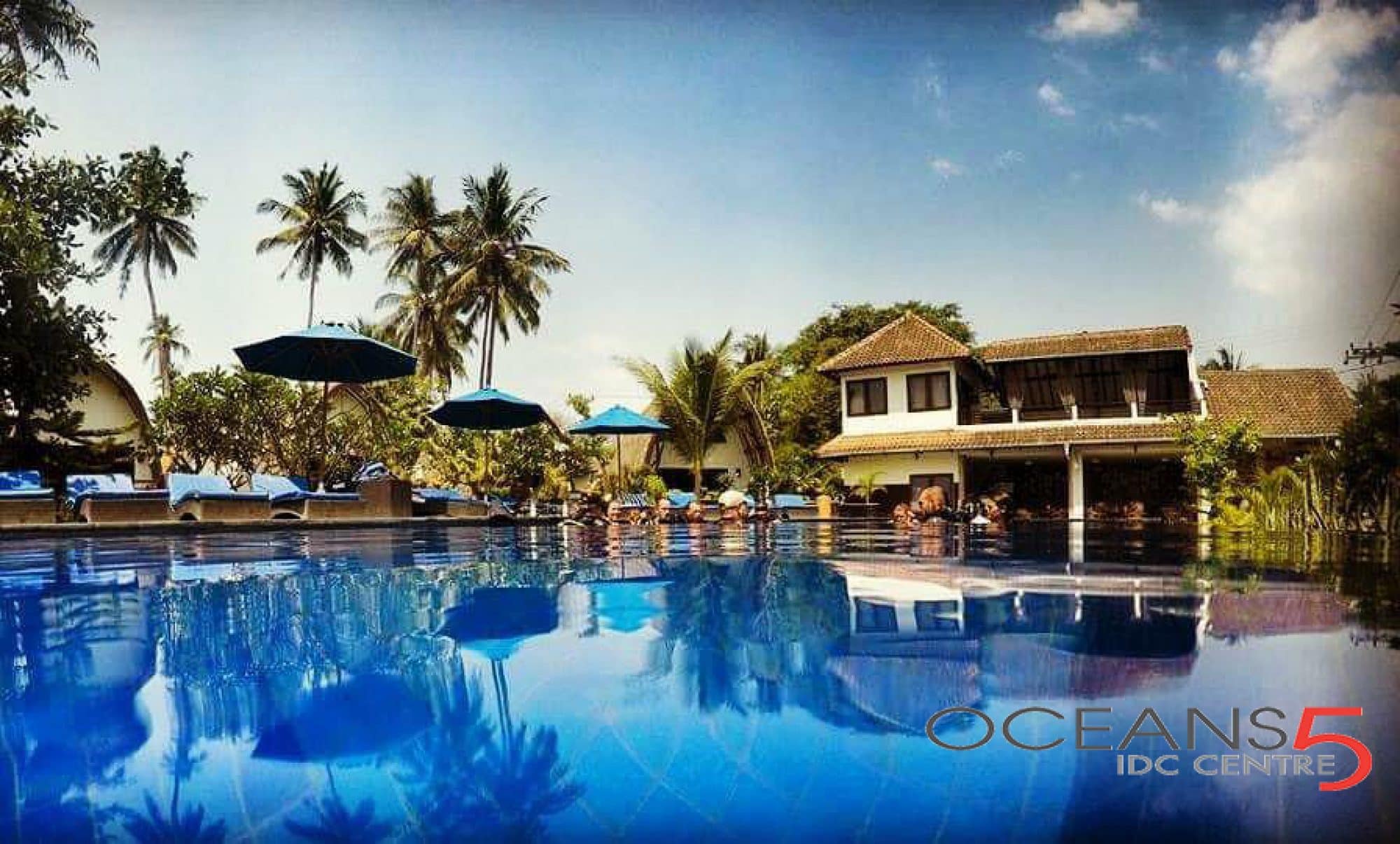Becoming a Great Diving Instructor
Becoming a great diving instructor is more than just having the necessary certifications and knowledge. It’s about having the right attitude, a deep passion for the underwater world, and a commitment to helping others discover the beauty of the ocean. At Oceans 5 Gili Air, a renowned PADI Career Development Centre, the journey to becoming a diving instructor is not just about ticking boxes; it’s about cultivating a mindset that ensures long-term success. In this blog post, we’ll explore what it takes to become a great diving instructor based on the experiences and philosophies of this esteemed dive shop.

- Choose the Right Dive Centre
Your journey to becoming a great diving instructor starts with choosing the right dive centre. Oceans 5 Gili Air’s owner, a PADI Course Director, emphasizes the importance of selecting instructors from the batches of the last few months’ IDCs. This strategy ensures that instructors are already familiar with the island and genuinely enjoy its unique charm. When selecting a dive centre, look for one that aligns with your values and vision as an instructor.
- Embrace a Positive Attitude
One of the key qualities that Oceans 5 Gili Air values in its diving instructors is a positive attitude. It’s not about being a know-it-all or striving for perfection; it’s about a genuine willingness to improve and help others do the same. Great diving instructors are open to continuous learning and are excited about sharing their knowledge and passion with their students.
- Dedicate Yourself to Improvement
Becoming a great diving instructor is an ongoing process. At Oceans 5 Gili Air, instructors are given the space and support to work towards their personal goals and aspirations. This commitment to improvement is essential for staying relevant in the dynamic world of scuba diving. Whether it’s perfecting your teaching techniques, acquiring additional certifications, or mastering your dive skills, there’s always room to grow.
- Foster a Love for the Ocean
A great diving instructor is more than just an expert in diving techniques; they are ambassadors for the underwater world. Cultivate a deep love for the ocean, its ecosystems, and its inhabitants. Share your passion with your students and instill in them a sense of responsibility and stewardship toward marine conservation. Remember that your enthusiasm is contagious and can inspire others to become lifelong ocean advocates.
- Connect with Your Students
Building strong relationships with your students is key to becoming a great diving instructor. Listen to their needs, concerns, and goals. Tailor your teaching approach to their individual learning styles and comfort levels. Creating a safe and supportive learning environment encourages trust and fosters a memorable and enjoyable diving experience.
- Be a Role Model
As a diving instructor, you are a role model for your students. Set a positive example by following safety protocols, respecting the environment, and demonstrating good diving etiquette. Your actions speak louder than words, and your students will look up to you for guidance and inspiration.
- Pursue Professional Development
Continuous professional development is crucial for staying at the top of your game as a diving instructor. Stay updated with the latest industry trends, safety standards, and teaching techniques. Consider taking specialty courses, attending workshops, or even becoming a dive shop owner or PADI Course Director like those at Oceans 5 Gili Air.
Conclusion
Becoming a great diving instructor is a rewarding journey that goes beyond teaching scuba diving skills. It’s about having the right attitude, fostering a love for the ocean, connecting with students, and continuously improving yourself as an educator. Oceans 5 Gili Air’s approach to selecting and nurturing instructors highlights the importance of these qualities. Whether you aspire to work with a world-class dive centre or start your own, remember that being a great diving instructor is about making a lasting impact on your students and the underwater world they come to love.




